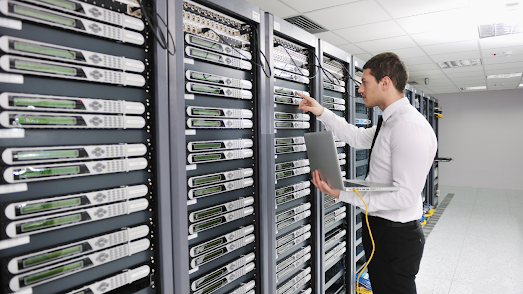When it comes to the backbone of IT infrastructure, server hardware stands tall as the crucial component ensuring smooth operation of a multitude of tasks. However, understanding server hardware isn't just about knowing what a CPU or RAM is, but delving deeper into their specialized types and functionalities tailored for server environments. Let's journey through the essentials of server hardware.
### **1. The Heart of Operations: CPUs (Central Processing Units)**
**a. Multi-core CPUs:** Just as a multi-lane highway allows more vehicles to travel simultaneously, CPUs with multiple cores facilitate parallel processing. This ensures that servers efficiently juggle multiple tasks at once.
**b. Hyper-threading:** A marvel of technology, hyper-threading allows a single CPU core to manage several threads. The result? A significant boost in performance.
**c. Server-grade Processors:** Unlike their consumer counterparts, server-grade CPUs are crafted explicitly for server workloads. They bring to the table enhanced performance, rock-solid reliability, and scalability.
### **2. The Brain’s Workspace: Memory (RAM)**
**a. ECC vs. Non-ECC:** ECC RAM takes reliability a notch higher. With its ability to detect and rectify errors, it ensures impeccable data integrity.
**b. RAM Capacities:** When it comes to RAM, servers don’t hold back. They come packed with a much larger RAM capacity than the typical desktop, facilitating efficient multitasking and data handling.
### **3. Data Housing: Storage Solutions**
**a. HDDs:** The old guards of storage, HDDs provide ample space but might lag when speed is the essence.
**b. SSDs:** The modern torchbearers, SSDs utilize flash technology. They're faster, more efficient, and are gradually becoming the preferred choice for many server configurations.
**c. RAID Configurations:** Think of RAID as a team of storage drives. They collaborate, either prioritizing data redundancy, maximizing performance, or both.
It's vital to remember that these are just the foundational blocks. Server hardware configurations are intricate puzzles, tailored to the unique needs of an organization. The market is brimming with options, with diverse offerings from myriad vendors.
### **Frequently Asked Questions (FAQs):**
1. **What's the difference between consumer-grade and server-grade CPUs?**
- Server-grade CPUs are tailored for heavy-duty tasks, extended reliability, and scalability, making them ideal for server environments. Consumer-grade CPUs, though efficient, might not offer the same level of performance and resilience.
2. **Why is ECC RAM preferred in servers?**
- Servers handle critical data and operations. ECC RAM's ability to detect and correct errors ensures data integrity and reduces system crashes, making it indispensable for such crucial tasks.
3. **How do I choose between HDDs and SSDs for my server?**
- If speed, performance, and durability are paramount, SSDs are your go-to. However, if you need high storage capacity at a lower cost and can compromise a bit on speed, HDDs are viable.
### **Conclusion:**
Server hardware is more than just assembling components; it's about creating a cohesive, efficient system tailored for specific needs. From CPUs designed for rigorous tasks to memory modules ensuring error-free operations, every aspect is meticulously crafted for optimal performance. As technology evolves, the server hardware landscape will continue to transform, offering even more specialized and efficient solutions.
